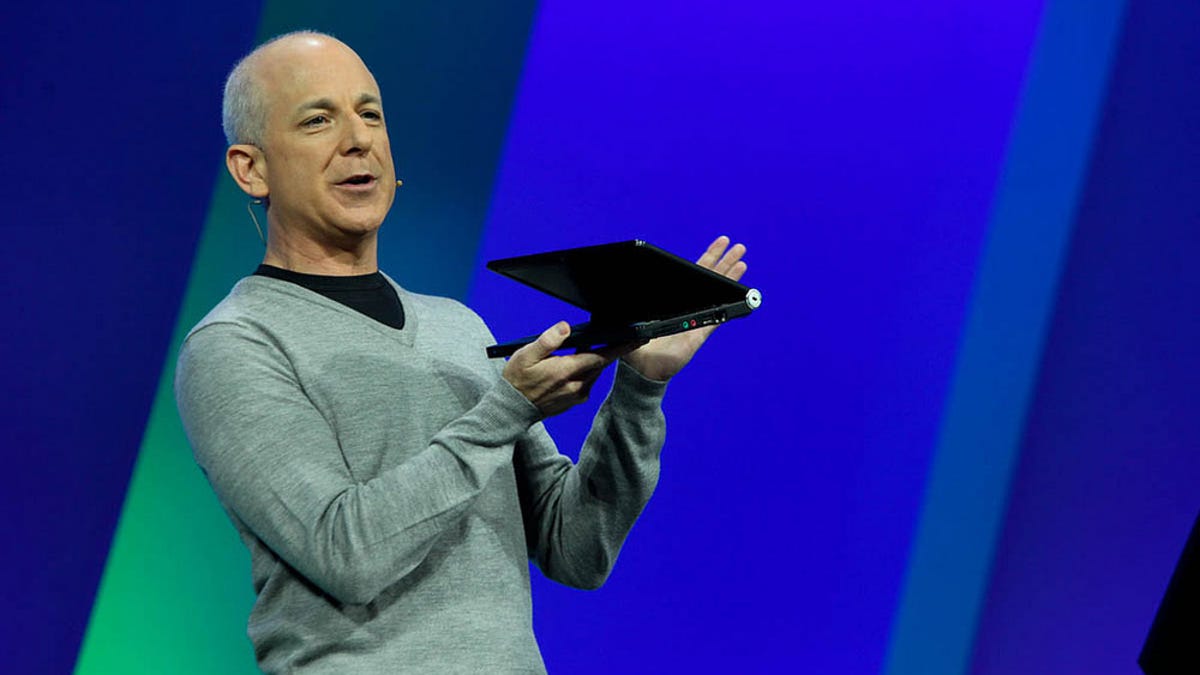Can Microsoft make Windows 8 the mobile OS?
The software giant will unveil the beta version of its upcoming PC operating system at Mobile World Congress as it repositions Windows as tablet operating system.

It may seem odd that Microsoft executives are traveling all the way to Barcelona, Spain, to debut the beta version of the upcoming Windows 8 operating system at a mobile device show.
But Microsoft, which has launched tablets and mobile phones long before rivals only to see others dominate those businesses, is hoping that the next version of its desktop operating system will reverse years of stumbling.
"It's an acknowledgement that mobile is what Microsoft needs to address," said Rick Sherlund, an analyst with Nomura Securities.
Tomorrow, the software giant will debut the Windows 8 beta, something the company is calling the Consumer Preview, at the Mobile World Congress trade show in Barcelona. MWC is the place where Nokia just debuted its 808 PureView phone with a huge 41 megapixel camera and Samsung unveiled its Galaxy Beam phone that includes an internal projector.
It's not the most likely venue for a major Windows announcement. But Microsoft wants Windows 8 to be the operating system that helps it thrive in a world where tablet growth is soaring and PC sales aren't. Consumers, who simply want to be connected to the Web to check Facebook and e-mail, watch video clips, and shop, are increasingly using devices other than personal computers for those tasks.
That's why Microsoft is trying to leverage its Windows PC hegemony into markets where rivals have jumped ahead. The company needs to show that the next version of Windows can provide that simple Web access on a variety of devices--everything from traditional PCs to trim ultrabooks to touch-friendly tablets.
Microsoft's Windows boss Steven Sinofsky has referred to Windows 8 as a "no compromise" operating system--one that can power high-end gaming machines that run Intel processors as well as trim tablets using ARM chips. When Microsoft gave its developers the first detailed look at the new operating system in September, Sinofsky talked about the importance of addressing the needs of mobile users.
"It used to be that it was enough to be able to just carry your laptop around, put it down, plug it in and use it," Sinofsky said in his keynote address at the conference. "But now you want devices that you can use while you're carrying them around or just seated kind of uncomfortably or reclined. A whole new way of using computing has really arisen, and we want Windows to respond to that."
But trying to create an operating system that addresses such a broad set of needs has its own challenges.
"When you describe something as 'no compromise,' you end up with something that's a giant compromise for all things," said Gartner analyst Michael Gartenberg.
With Windows 8 on ARM, for example, Microsoft will offer a slightly different experience for consumers than the one they'll get with tablets running the traditional PC x86 architecture with chips from Intel and AMD. The ARM system-on-a-chip architecture means that devices themselves can be thinner and lighter. But it also means that some legacy applications won't work unless developers port those applications.
To make the transition easier, Microsoft said earlier this month that it would ship a version of its upcoming productivity suite, code-named Office 15, for the ARM version of Windows 8, that will be touch-enabled. And that version of Office will run in the traditional Windows desktop mode that will ship on the ARM devices.
"ARM (tablets) will have something that looks like a Windows desktop, but isn't really one," Gartenberg said.
In Barcelona, Microsoft will need to give consumers a reason to pick a Windows 8 tablet instead of an iPad or Amazon's Kindle Fire. It will need to present a compelling vision for choosing its ecosystem, one that makes its easy to jump from one Windows device to another.
"Microsoft needs to show why consumers should care about Windows 8 in a world where the personal computer is not the hub of their digital world," Gartenberg said.

